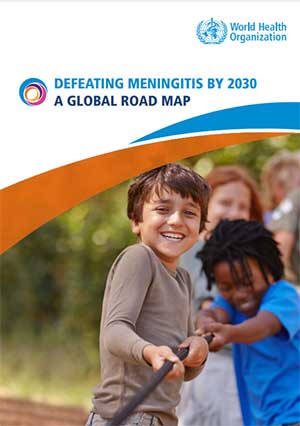The "Global Roadmap to Defeat Meningitis by 2030
The World Health Organization (WHO) is aiming to eliminate the most deadly form of meningitis by 2030 through increased awareness and access to treatments, global plans launched by the UN agency recently to combat the inflammatory disease showed.
The "Global Roadmap to Defeat Meningitis by 2030" was launched by a coalition of partners at a virtual event in Geneva to focus on preventing infections and improving care and diagnosis for those who contract meningitis.
Although meningitis affects all ages, young children are most at risk. Newborn babies are at most risk from Group B streptococcus, young children are at higher risk from meningococcus, pneumococcus and Haemophilus influenzae. Adolescents and young adults are at particular risk of meningococcal disease while the elderly are at particular risk of pneumococcal disease.
Cause of meningitis :
There are four main causes of acute bacterial meningitis:
- Neisseria meningitidis (meningococs)
- Streptococcus pneumoniae (pneumococc)
- Haemophilus influenzae
- Streptococcus agalactiae (group B streptococcus)
These bacteria are responsible for more than half of the deaths from meningitis globally and they cause other severe diseases like sepsis and pneumonia. Other bacteria e.g., Mycobacterium tuberculosis, Salmonella, Listeria, Streptococcus and Staphylococcus, viruses such as enteroviruses and mumps, fungi especially Cryptococcus, and parasites like Amoeba are also important causes of meningitis.
Transmission :
The route of transmission varies by organism. Most bacteria that cause meningitis such as meningococcus, pneumococcus and Haemophilus influenzae are carried in the human nose and throat. They spread from person to person by respiratory droplets or throat secretions. Group B streptococcus is often carried in the human gut or vagina and can spread from mother to child around the time of birth.
Carriage of these organisms is usually harmless and helps build up immunity against infection, but the bacteria occasionally invade the body causing meningitis and sepsis.









